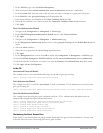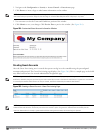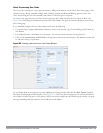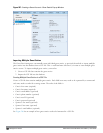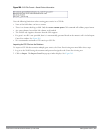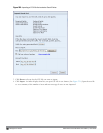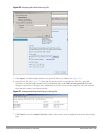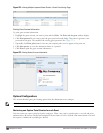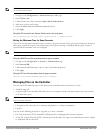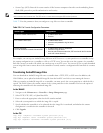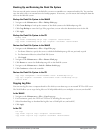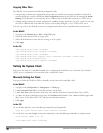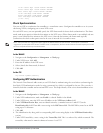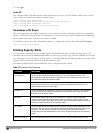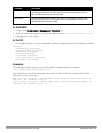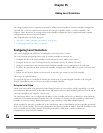
NOTE: If a guest logs in from one system (and does not log out) and tries to log in again from another system, that guest has to wait
for the initial session to expire.
1. Navigate to the Configuration > Advanced Services> All s page.
2. Select Wireless Lan.
3. Under Wireless Lan, select and open Captive Portal Authentication.
4. Add a new or select and existing
5. Select the Allow only one active user session check box.
6. Click Apply.
Using the CLI to restrict one Captive Portal session for each guest
(host)(config)# aaa authentication captive-portal <> single-session
Setting the Maximum Time for Guest Accounts
You can set the maximum expiration time (in minutes) for guest accounts. If the guest-provisioning user attempt to
add a guest account that expires beyond this time period, an error message is displayed and the guest account is
created with the maximum time you configured.
NOTE: If you set the maximum expiration time, it applies to all users in the internal database whether they are guests or not.
Using the WebUI to set the maximum time for guest accounts
1. Navigate to the Configuration > Security > Authentication page.
2. Select Internal DB.
3. Under Internal DB Maintenance, enter a value in Maximum Expiration.
4. Click Apply.
Using the CLI to set the maximum time for guest accounts
(host)# local-userdb maximum-expiration <minutes>
Managing Files on the Controller
You can transfer the following types of files between the controller and an external server or host:
l ArubaOS image file
l A specified file in the controller’s flash file system, or a compressed archive file that contains the entire content
of the flash file system
NOTE: You back up the entire content of the flash file system to a compressed archive file, which you can then copy from the flash
system to another destination.
l Configuration file, either the active running configuration or a startup configuration
l Log files
You can use the following protocols to copy files to or from a controller:
l File Transfer Protocol (FTP): Standard TCP/IP protocol for exchanging files between computers.
l Trivial File Transfer Protocol (TFTP): Software protocol that does not require user authentication and is simpler
to implement and use than FTP.
DellPowerConnectW-SeriesArubaOS6.2 | User Guide Management Access | 657



